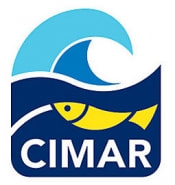Santa Elena BayThis IRES program will take place in Costa Rica. Students will be staying at Cuaniquil and working in their projects at Santa Elena Bay. The town of Cuajiniquil is located near restaurants, cafes, clinics, and pharmacies. This field site is a unique oceanography region defined by seasonal upwelling that drives the region’s marine ecosystems and organismal diversity.
|
Diving Center CuajiniquilInstagram @diving_center_cuajiniquil
|
The diving center is a local dive shop from Cuajiniquil that has been collaborating in different projects develop by the University of Costa Rica since the late 1990s. Apart from all their experience working, diving, and fishing in the Santa Elena Gulf, this family-based dive shop has been trained in different monitoring techniques, including UVS, BRUVS, fishing handling and tagging, aerial surveys with drones, acoustic telemetry, and whale monitoring surveys. Moreover, this dive shop in Cuajiniquil is truly the definition of what local stakeholders are, and their impact in marine conservation, as their presence in the community has inspired many others to transition from fishing to tourism, thus promoting a better management and the conservation of key marine habitats and species in the region. This family also has many years of experience working close together with US-based University Student Programs. This dive center is a true partner in our scientific studies in the Santa Elena Bay.
|
Center of Research in Marine Sciences and Limnology (CIMAR)Instagram: @cimarucr
|
The Center of Research in Marine Sciences and Limnology (CIMAR) at the University of Costa Rica is a renowned leading marine research and conservation institute in Central America. The institute was founded in 1979, and since has played a major role in the scientific discovery of marine organisms and ecosystems, and as a leader designing scientific strategies and policies for the government of Costa Rica. The University of Costa Rica was founded in 1940 and ranks #1 in Central America and #19 in Latin America. Students participating in this program will have the opportunity to meet CR students and scientists, participate in cultural and outreach activities, and projects led by CR researchers at CIMAR. CR mentors will provide support with research permits, housing, recruiting CR students, transport, fieldwork logistics, and mentoring.
|


